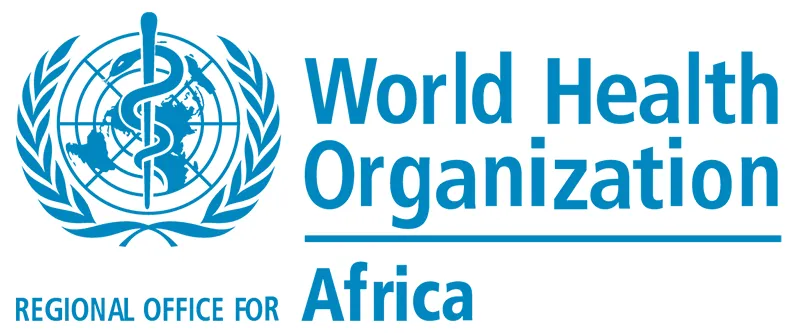
Empowering Women: Côte d'Ivoire's Revolutionary Cervical Cancer Self-Testing Initiative
2025-04-04
Author: Sarah
Côte d'Ivoire is making significant strides in tackling cervical cancer, a disease that poses a dire threat to women, with nearly 90% of screenings now conducted through innovative self-testing methods. This transformative approach not only empowers women to take control of their health but also facilitates private and convenient access to essential screening services at a time when cervical cancer cases are alarmingly rising.
Cervical Cancer Statistics and Challenges
In 2022, the country recorded approximately 2,360 new cases of cervical cancer, leading to a mortality rate of 62%. Dr. Simon Boni, head researcher at the National Cancer Control Programme (PNLca), emphasizes that late diagnoses, limited access to treatment, and a general lack of awareness are major factors contributing to this tragic statistic. "Our goal is to normalize cervical cancer screening and eliminate the stigma that often surrounds women's health issues," he asserts.
Prevention and Initiatives
Cervical cancer is preventable with effective vaccination and can be treated successfully if detected at an early stage. In 2019, the Ivorian government, with the support of the World Health Organization (WHO) and UNITAID, launched the Scale Up Cervical Cancer Elimination with Secondary Prevention Strategy (SUCCESS). This initiative seeks to eliminate cervical cancer as a public health issue, not just in Côte d'Ivoire but also in neighboring Burkina Faso.
The Impact of Self-Testing
The introduction of self-testing into the national strategy two years ago has massively improved screening accessibility, especially for women living with HIV, who are at six times greater risk for developing cervical cancer. Women like Chantale, who tested positive for HIV in 2016, have told heartwarming stories about how the self-testing option helped catch the disease early despite the absence of symptoms. “Thanks to self-testing, I found out early, and with my family’s support, I completed my treatment successfully,” she recalls.
Screening Success Rates
From 2021 to 2023, over 40,000 women were screened through the SUCCESS project across four health regions. The self-test method, which allows women to collect their cervical samples, has proven to boost confidence and comfort levels, while also dismantling cultural barriers that often inhibit screening.
Healthcare Provider Support
Dr. Boni points out that health providers have embraced self-testing, which allows them to manage their workloads more efficiently and focus on essential monitoring tasks. Notably, the uptake of self-testing in healthcare settings soared from 51% in 2022 to a staggering 90% in 2023.
Case Study: Saint Camille Hospital
One successful case study is Saint Camille Hospital in Bouaké, where a comprehensive secondary prevention strategy gained momentum with WHO's support. The Ministry of Health trained 20 health professionals to conduct community outreach, HPV testing, and treatment, resulting in early-stage disease detection for many women living with HIV.
Testimonials from Healthcare Professionals
“Self-testing is a game changer for us,” states Dr. Françoise Milolo from Saint Camille Hospital. “By detecting precancerous lesions early, we provide our patients with timely treatment that can save lives.”
Expansion of Screening Facilities
The number of health facilities offering cervical cancer screening services has expanded from just 34 to over 200, significantly boosting women's confidence in seeking care. Agnès Diasso, a dedicated midwife involved in the initiative, highlights, “Early detection remains one of the most effective ways to combat cervical cancer, and integrating screening into various health programs is crucial.”
Global Support and Future Goals
WHO continues to back Côte d'Ivoire in its ambitious aim to eliminate cervical cancer, striving for 70% coverage of eligible women by 2030. The model being developed in Côte d'Ivoire, particularly for HIV-positive women, stands out as a pioneering approach that other nations could adopt.
Conclusion
As Dr. Fatim Tall, Programme Coordinator at WHO in Côte d'Ivoire, points out, “Integrating HPV tests into the national program enhances the value of self-sampling. Women feel more comfortable and empowered to collect their own samples, leading to a healthier future.” In a world where women's health issues often take a backseat, Côte d'Ivoire is setting an inspiring example of how innovation and proactive health strategies can pave the way for a brighter, cancer-free future for women everywhere.



 Brasil (PT)
Brasil (PT)
 Canada (EN)
Canada (EN)
 Chile (ES)
Chile (ES)
 Česko (CS)
Česko (CS)
 대한민국 (KO)
대한민국 (KO)
 España (ES)
España (ES)
 France (FR)
France (FR)
 Hong Kong (EN)
Hong Kong (EN)
 Italia (IT)
Italia (IT)
 日本 (JA)
日本 (JA)
 Magyarország (HU)
Magyarország (HU)
 Norge (NO)
Norge (NO)
 Polska (PL)
Polska (PL)
 Schweiz (DE)
Schweiz (DE)
 Singapore (EN)
Singapore (EN)
 Sverige (SV)
Sverige (SV)
 Suomi (FI)
Suomi (FI)
 Türkiye (TR)
Türkiye (TR)
 الإمارات العربية المتحدة (AR)
الإمارات العربية المتحدة (AR)